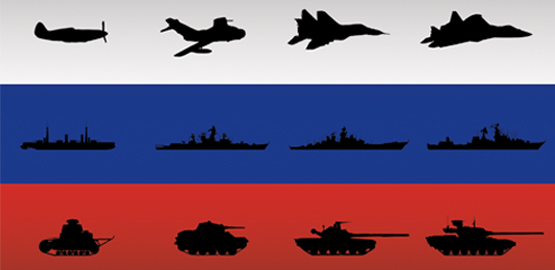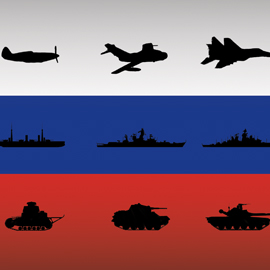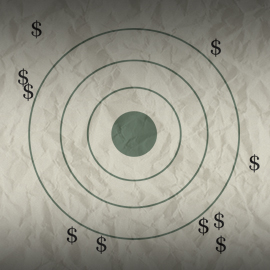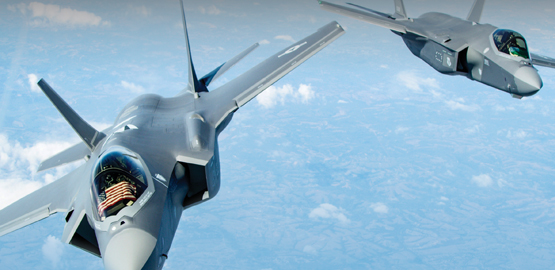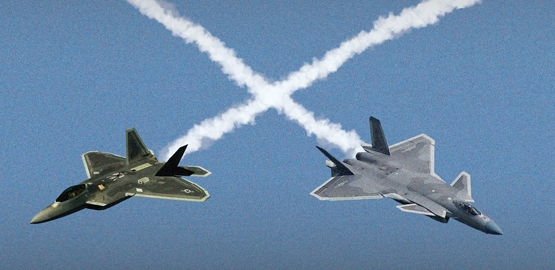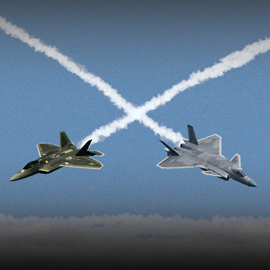Publications
"Nobody does defense policy better than CSBA. Their work on strategic and budgetary topics manages to combine first-rate quality and in-depth research with timeliness and accessibility—which is why so many professionals consider their products indispensable." – Gideon Rose, Editor of Foreign Affairs, 2010-2021
Slow and Steady: Analysis of the 2022 Defense Budget Request
In May 2021, the Pentagon presented its first budget request to the Biden Administration, proposing a $715 billion topline for Fiscal Year 2022, representing a 0.2 percent real decrease relative to the previous fiscal year. In a shift from previous budgets, the request also included contingency operations costs within DoD's base budget, eliminating the separate Other Contingency Operations (OCO) account that has supplemented the Defense Department's budget for two decades.
Implementing Deterrence by Detection: Innovative Capabilities, Processes, and Organizations for Situational Awareness in the Indo-Pacific Region
One of the essential hallmarks of deterrence is the ability to effectively detect – and therefore prepare for – a potential adversary’s hostile action in a timely fashion. Just as the threat of effective retaliation must be credible, deterrence also depends on a robust ability to identify and assess aggressive acts, including acts of coercion that fall below the threshold of kinetic conflict. Recent Chinese actions toward Taiwan, for example, have heightened the conviction among U.S. and allied defense planners that effective, interoperable intelligence, surveillance, and reconnaissance (ISR) systems are essential for the security of the entire Indo-Pacific theater.
Delivering Advanced Unmanned Autonomous Systems and Artificial Intelligence for Naval Superiority
At the individual level, organizations within the Department of the Navy's research and development ecosystem house significant talent and engage in innovative research at the cutting edge of a wide range of disciplines and technologies that could maintain the U.S. Navy’s technological advantage. However, the Navy’s current unmanned autonomous systems R&D construct has an opportunity to continue improving the organization of this effort to further expand and leverage its recent efforts.
America’s Strategic Choices: Defense Spending in a Post-COVID-19 World
This report summarizes the findings of two Strategic Choices Exercises hosted by The Ronald Reagan Institute and CSBA in October 2020, convening a bipartisan group of senior defense and budget experts, current and former policy makers, and industry leaders. The initiative was supported by the National Defense Industrial Association.
Seizing on Weakness: Allied Strategy for Competing With China’s Globalizing Military
China’s military is going global. In the coming decade, the People’s Liberation Army (PLA) could be well-positioned to influence events and conduct a wide range of missions, including limited warfighting, beyond the Western Pacific. The United States and its close allies, who have enjoyed largely unobstructed access to the world’s oceans for the last three decades, will need to adjust to new military realities as the PLA makes its presence felt in faraway theaters.
Selective Disclosure: A Strategic Approach to Long-Term Competition
Although the Department of Defense has embraced the concept of "great power competition" as a planning and investment guide, it has yet to fully adapt its processes and priorities to maximize U.S. advantages in this environment. As the United States develops new defense technologies and concepts, policy planners should consider which ones to reveal, as well as the timing and extent to which they are revealed. As evidenced by Chinese and Russian disclosures, these considerations include not only concealing systems to delay an adversary’s response, but also disclosing information for strategic effect, such as provoking competitors to expend resources on defensive countermeasures based upon an incomplete grasp of a perceived capability.










